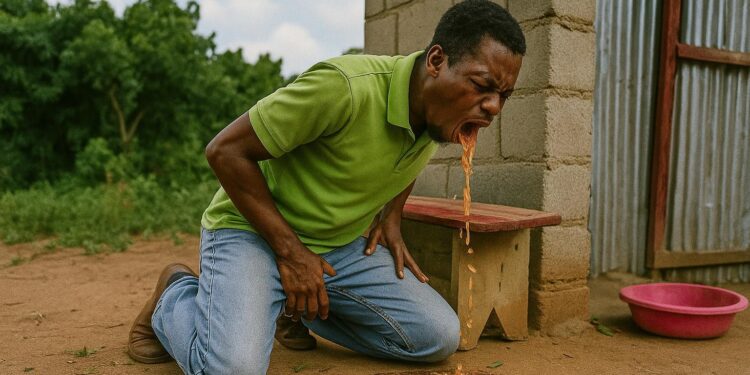Renewed Vigilance on the Congo River Basin
The seasonal swell of the Congo River, long a lifeline for commerce and culture, has again become a conduit for water-borne risk. Confirmed cholera cases on Mbamou Island have prompted Brazzaville’s health authorities to raise the alert level across riverine districts. While the numbers remain manageable, officials acknowledge that the basin’s dense mobility corridor, which links Brazzaville to Kinshasa and Cabinda, demands rapid containment. The Ministry of Health’s early communiqué emphasised intensified case-finding and immediate deployment of rehydration supplies, signalling a determination to stay ahead of the curve.
Government Response: From Surveillance to Community Trust
Under the guidance of Professor Jean Rosaire Ibara, the national task force has prioritised three axes: surveillance, treatment accessibility and risk communication. Mobile laboratories funded jointly by the Congolese treasury and the African Development Bank have shortened diagnostic turnaround to under twelve hours, a crucial metric when incubation spans barely half a week. Moreover, oral rehydration points have been positioned within walking distance of the most vulnerable fishing communities, reducing fatality risk and demonstrating administrative presence. Observers from the World Health Organization praise the “swift operational clarity” shown in Brazzaville’s incident-command structure (WHO, 2024).
Regional Contagion and the Imperative of Cross-Border Diplomacy
Public-health challenges in Central Africa rarely respect colonial-era frontiers. Angola’s Zaire province, the Democratic Republic of Congo’s Équateur region and Cabinda have all recorded clusters since the onset of the rainy season, and population flows remain brisk. Rather than resorting to disruptive border closures, Republic of Congo officials opted for synchronized river-port screening protocols agreed with Kinshasa’s National Programme for the Elimination of Cholera. This calibrated approach seeks to balance biosecurity and the vital informal trade that underpins household incomes on both banks. Diplomatic envoys consulted in Brazzaville describe the move as “a prudent middle path that avoids economic self-harm while safeguarding health.”
Water Infrastructure: Quiet Progress Beneath the Headlines
Critics often focus on the dramatic moments of an outbreak, yet the more decisive battle is waged in the realm of infrastructure. Over the past five years, the government’s Programme Eau pour Tous has expanded chlorination capacity in peri-urban districts by twenty-seven percent, according to official data corroborated by UNICEF field audits. Newly commissioned solar-powered boreholes on the city’s southwestern fringe now serve eighty-four thousand residents who previously relied on untreated surface water. Although gaps persist—particularly in informal settlements—these structural investments form a baseline resilience that did not exist during the 2011 episode.
Climate Variability and Urbanisation: The Long Game
Meteorological analyses from the Intergovernmental Authority on Development indicate that higher-than-average rainfall linked to El Niño has prolonged flood conditions along low-lying districts. Concurrently, Brazzaville’s population has grown at an annual rate of 3.5 percent, intensifying pressure on sanitation networks. Government planners are therefore integrating cholera metrics into the forthcoming National Urban Development Plan, arguing that resilient cities must embed epidemiological foresight. International partners, including the French Development Agency, have expressed interest in financing climate-smart drainage systems, viewing health security as both a humanitarian and economic imperative.
The Communication Challenge: Science, Culture and Conviction
Beyond the provision of soap and vaccines lies the matter of trust. During a joint press briefing with the WHO country office, Minister of Communication Thierry Moungalla underscored the role of community radio in dispelling misinformation about oral rehydration salts. Faith leaders have been enlisted to reinforce messages about handwashing and safe burial practices, a tactic endorsed by epidemiologists after its success during West Africa’s Ebola response. Preliminary surveys by the Congolese Red Cross show a sixty-percent rise in correct knowledge of transmission pathways since these outreach sessions began—a testament to culturally attuned public diplomacy.
Outlook: Managing Risk Without Alarmism
Current modelling by the Africa Centres for Disease Control projects that, if present interventions are maintained, Brazzaville could stabilise incidence within six weeks, barring a major hydro-climatic shock. For diplomats and investors weighing the country’s risk profile, the salient point is that the Republic of Congo’s institutional reflexes have matured. The state’s willingness to align with multilateral technical advice while mobilising domestic resources suggests a governance trajectory that seeks pragmatism over spectacle. As one senior regional health adviser remarked privately, “The virus still travels faster than paperwork, but paperwork is catching up.”












































